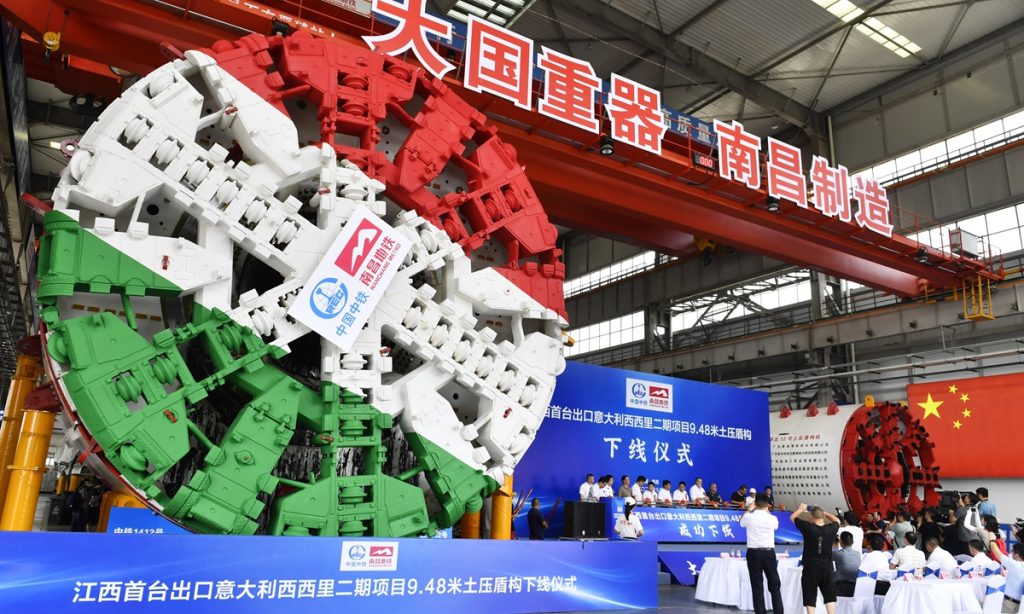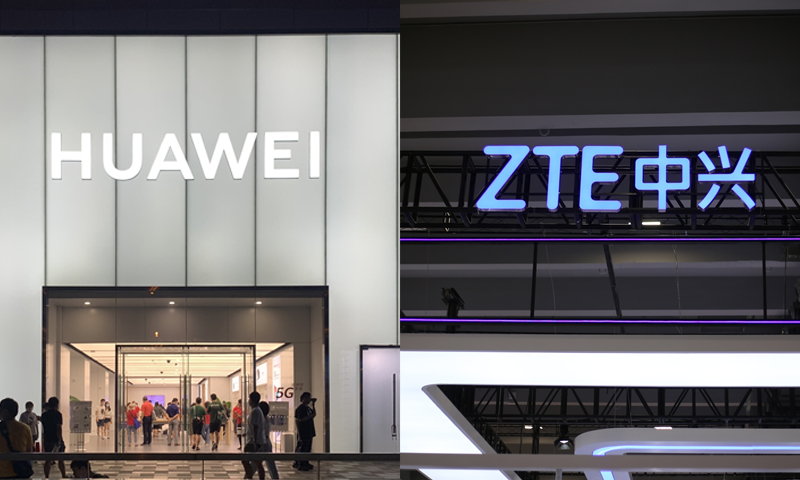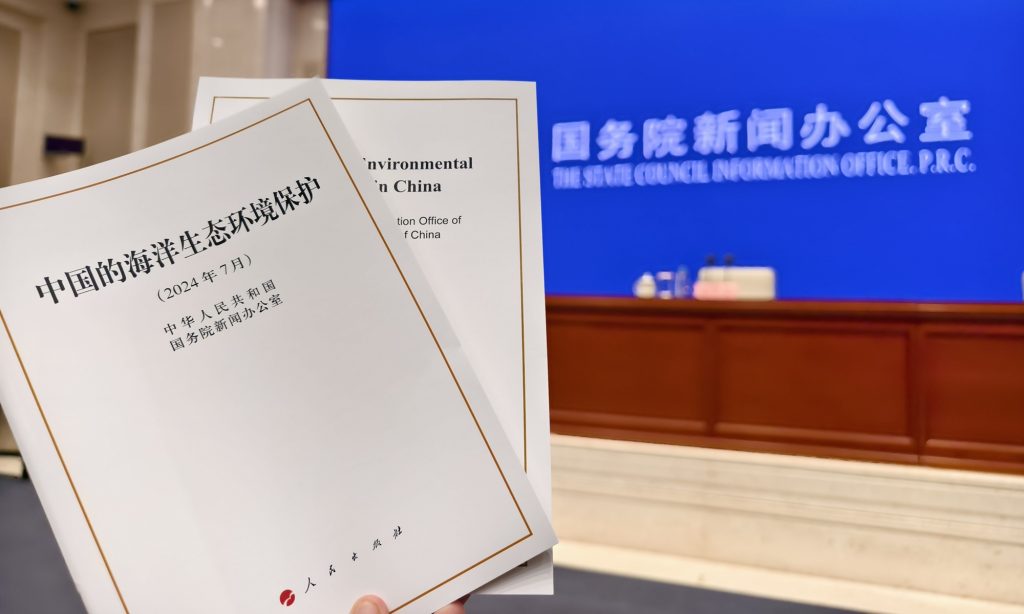CPC navigates China to realizing economic blueprint through deepening reform and opening-up

As the Communist Party of China (CPC) is expected to convene a crucial reform-themed meeting next week, a look back on China's remarkable achievements in comprehensively deepening reform and opening-up over the past decade, which underpinned China's high-quality development against a complex global geo-economic situation, offers a critical window into what to expect from the upcoming meeting.
The third plenary session of the CPC Central Committee, often referred to as the third plenum, has carried enormous significance in China's economic and social development, as it has drawn up the reform agenda for years since the third plenum in 1978, which marked the beginning of China's reform and opening-up that helped lift China from a backward agrarian country to the world's second-largest economy. Since the third plenum of the 18th CPC Central Committee, convened in 2013, ushered in an era of comprehensively deepening reform, China has witnessed greater social and economic development despite external and internal challenges and become a pioneer and builder of world peace and development, and a driving force in shaping a more just and effective global governance structure.
Today, as the world navigates its way through the mist of escalating geopolitical tensions, flagging economic growth, and global economic and financial fragmentation triggered by some Western powers' rising protectionism, domestic and global expectations for the upcoming third plenum are running high. Many in China and around the world are anticipating that the meeting will spur the world's second-largest economy toward higher level development through further deepening reform and opening-up and to contribute certainty and stability to a world in turbulence.
Since the Third Plenary Session of the 18th Communist Party of China (CPC) Central Committee, China has witnessed comprehensive achievements in its reform and opening-up, paving ways for the country to realize its second centenary goal of building a modern socialist country that is prosperous, strong, democratic, culturally advanced and harmonious by 2049, Chinese economists said.
Since Chinese leader Xi Jinping took the top office more than a decade ago, China has entered a "new era." As the world today is undergoing major changes unseen in a century, the country's economic strength has grown, and its international influence has continued to rise. Reform is the hallmark of this era.
As the CPC will convene on July 15 in Beijing the third plenary session of its 20th central committee, which will primarily examine issues related to further comprehensively deepening reform and advancing Chinese modernization, analysts noted that China's economic progress fostered by the Party's relentless efforts in forging ahead reform and opening-up has contributed to global prosperity and security.
China's economy has achieved a historic rise, with GDP growing to 126 trillion yuan ($18 trillion) in 2023 from 53.9 trillion yuan in 2012. For years, China has contributed about 30 percent of global GDP growth.
Market's decisive role
Under the strong leadership of the CPC Central Committee with Comrade Xi Jinping at its core, the country has conducted in-depth reforms in both building the unified domestic market and forming new structure of all-round opening-up, having scored remarkable achievements in promoting the market economy, sci-tech innovations and higher-level opening-up, Yu Miaojie, president of Liaoning University, told the Global Times.
One of hallmarks in the past years is that the Chinese economy was able to maintain a relatively fast growth rate while conducting its structural reforms that give the economy new vitality for more sustainable and high-quality growth, experts noted.
Along with the country's policies to optimize resources allocation and foster the transition of traditional industries, emerging industries saw fast expansion and the services industry continued to grow in prominence.
A reform decision in 2013 said that it was China's aim for the market to play a "decisive" role in allocating resources.
Through the implementation of the supply-side structural reform, the country pushed the economy toward high-quality development and moving to construct a new development pattern. This was achieved while the country is being confronted with major challenges, such as downward economic pressure due to the lingering impact from the COVID-19 pandemic, rising protectionism and suppression from Western nations, and risks associated with the real estate sector and local government debt issues.
From 2012 to 2023, the proportion of the value-added output from high-tech manufacturing in overall value-added output of large industrial enterprises has grown from 9.4 percent to 15.7 percent, while that of the equipment manufacturing sector rose from 28 percent to 33.6 percent, according to a report by Xinhua.
The added value of the services sector accounted for 54.6 percent of the GDP in 2023, up from 45.5 percent in 2012, while the contribution of domestic demand to the nation's economic growth has increased from 105.8 percent in 2012 to 111.4 percent in 2023.
Cao Heping, an economist at Peking University, told the Global Times that under the Party's leadership, the Chinese economy was able to maintain growth rate at roughly twice the rates of other major developed economies, and the Chinese economy has entered a period of steady progress in upgrading its economic structure and the adoption of new technologies, gradually shifting its production model from the traditional assembly line manufacturing to connected and sharing manufacturing supported by advanced digital technologies.
Such a transition would be impossible without the steadfast leadership by the Party in promoting scientific and technological progress which allows the digital economy to penetrate all sectors of the economy, and all of these are happening amid a challenging external environment featured by a global slowdown and US-led decoupling push and tech war against China, Cao said.
Now China is a world leader in digital infrastructure with the digital economy now accounting for about 44 percent of China's GDP. "In some fields such as the installations in 5G wireless base stations, China far outperforms the US and other major economies," noted Cao.
In the next five years, the ratio of China's digital economy to the national GDP could further grow to over 50 percent, marking the successful transition into a growth model powered by digital technologies, Cao said.
Over the years, the country's leadership has pushed for high-quality development and innovation-driven growth through deepening reforms and unleashing the vitality of market participants.
The system of a negative list for market access was comprehensively implemented, allowing entry into areas not explicitly prohibited by the list, and financial reforms were promoted to facilitate financing for private enterprises.
A number of statistics has demonstrated the evident effects of these efforts.
In 2023, the country saw 3.33 trillion yuan poured into research and development (R&D), accounting for 2.64 percent of the GDP, up from 1.91 percent in 2012.
According to the Global Innovation Index published by the World Intellectual Property Organization, China's ranking has jumped from 34th in 2012 to 12th last year.
"With heavy investment in R&D, China's original innovation capacity and process R&D can almost compete with developed economies such as the US," Yu said, noting that China's industrial capacity is also outstanding, represented by the electric vehicle (EV) sector.
A number of Chinese private companies, such as EV maker BYD and battery maker CATL, have attained global recognition for the competitiveness of their products and more private companies are now leading China's push in emerging sectors.
"Our company directly benefits from the country's policies to encourage private capital into emerging and innovative sectors and into the new-type infrastructure," Zhang Jingru, an executive with private Chinese commercial space company LandSpace, told the Global Times. In July last year, the company launched the world's first liquid oxygen, methane carrier rocket into orbit.
High-level opening-up
Since the third plenary session of the 18th CPC Central Committee, the CPC Central Committee has taken into account both the domestic and international imperatives, and advances a broader agenda of opening up across more areas and in greater depth in a bid to expand new growth room for the economy.
Xi has repeatedly stressed that China's door of opening-up will only open wider, and he has made "institutional opening-up" a priority.
"Establishing new systems for a higher-level open economy is a strategic measure to promote reform and development through opening up," Xi said when presiding over the second meeting of the Central Commission for Comprehensively Deepening Reform (CCCDR) in July 2023.
Over the past ten years, China is committed to establishing a new system for higher-level open economy, which in turn boosts in-depth reforms in the country while contributing China's wisdom and China's solution for an open global economy.
"China has said that it is committed to reform and opening-up and will never close its door to the world. Faced with questions from certain Western countries, China continues to deepen cooperation with the rest of the world in a larger scale, represented by the Belt and Road Initiative (BRI)," Wan Zhe, an economist and professor at the Belt and Road School of Beijing Normal University, told the Global Times.
Official data showed that China has signed free trade agreements with 29 countries and regions by January, and has signed more than 230 BRI cooperation agreements with over 150 countries and 30-plus international organizations. On the 10th year of the BRI, the cooperation platform has become a popular international public good and added new growth drivers to the global economy at a time when the world is facing tremendous changes, Wan said.
While the Regional Comprehensive Economic Partnership has been fully implemented, China is working toward joining the Comprehensive and Progressive Agreement for Trans-Pacific Partnership (CPTPP) and the Digital Economy Partnership Agreement (DEPA).
The country has lifted foreign ownership limits for securities companies, management companies of securities investment funds, futures companies, and life insurance companies.
As of January, 24 foreign Global Systemically Important Banks had established institutions in the Chinese mainland and nearly half of the world's top 40 insurance companies had entered the Chinese mainland market, according to data from the National Financial Regulatory Administration (NFRA).
The brilliant achievements made by the country under the leadership of the CPC have demonstrated the advantages of the socialist system. The CPC, adhering to a people-centered approach, has united the Chinese people and led them to make remarkable achievements, especially since the 18th CPC National Congress under the leadership of the CPC Central Committee with Comrade Xi Jinping at the core, analysts said.
They expressed full confidence in China's economy despite short-term and medium-term challenges including anti-globalization trend pushed by some Western countries, aging population and weak demand. "The upcoming third plenary session of the 20th CPC Central Committee is expected to focus on comprehensive, systemic and in-depth reforms, becoming another milestone in China's reform and opening-up," Yu said, noting that China's economic growth will grow more sustainably after in-depth reforms.
Yu projected that the country's GDP growth rate will likely reach 5.3-5.4 percent in 2024, higher than the pre-set target.
Looking ahead, Chinese policymakers should continue to push ahead market reforms, enhance rule of law and come up with detailed policies against the West's "small yard and high fence" policy, Wan said.
As China's economy enters a new stage of development, more reforms are needed to accelerate the development of new quality productive forces so as to boost total factor productivity and promote high-quality development, Wan said.
Betting on China's bright economic prospects, multinationals continue to expand their footprints in China and share the dividends of China's high-quality economic development as "investing in China means investing in the future."
Recently, PepsiCo began construction of a new food greenfield plant in Xi'an, Northwest China's Shaanxi Province, with the total investment reaching 1.3 billion yuan ($178.9 million). Swiss pharmaceutical giant Novartis has started construction of its second production site in China with total investment at around 600 million yuan.

